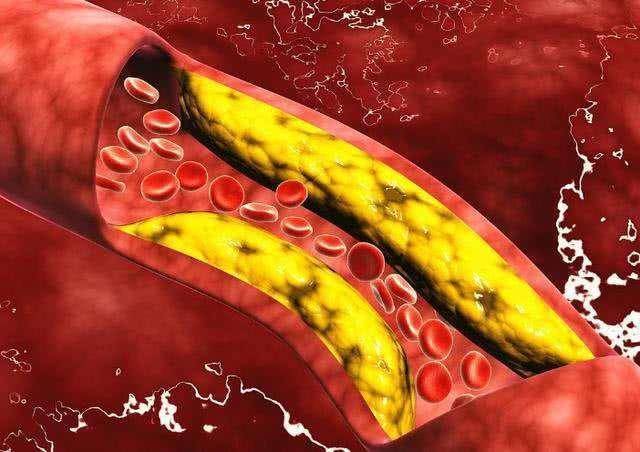Hyperlipidemia, this seemingly ordinary medical term actually hides numerous health risks. It is like an invisible sword silently threatening our life and health.
Hyperlipidemia, that is, when the lipid content in the blood exceeds the normal range, is a common metabolic disorder. This condition may seem insignificant, but if ignored for a long time, it may lead to a series of serious complications such as atherosclerosis, coronary heart disease, stroke, posing a huge threat to the patient’s life security.
The formation of hyperlipidemia is closely related to various factors, among which poor dietary habits, lack of exercise, and high stress are the main reasons. Therefore, in order to prevent and treat hyperlipidemia, efforts must be made in lifestyle habits.
Of course, for patients already suffering from hyperlipidemia, besides improving lifestyle habits, active cooperation with medical treatment is also necessary.
Doctors will formulate personalized treatment plans based on the patient’s specific condition, such as medication, lipid monitoring, etc., to help patients effectively control their lipid levels and reduce the risk of complications.
Hyperlipidemia is not an invincible enemy, as long as we face it positively and take correct preventive and treatment measures, we can definitely overcome it.
01
What symptoms occur when blood lipids rise?
Firstly, elevated blood lipids may cause dizziness and vertigo. This is because high blood lipids can affect blood circulation, leading to insufficient blood supply to the brain, resulting in dizziness. Sometimes, this dizziness may be accompanied by headaches, fatigue, and other symptoms, severely affecting daily life and work.
Secondly, elevated blood lipids can also lead to skin problems. Excessive blood lipids can cause lipid deposition under the skin, making the skin rough, dry, and even develop yellow spots. These spots typically appear on the eyelids, back of the hands, etc., as a typical manifestation of high blood lipids.
In addition, elevated blood lipids can also affect vision. High blood lipids may lead to vascular changes in the eyes, thereby affecting vision, causing blurred vision, decreased visual acuity, and sometimes dry, fatigued eyes, requiring special attention to eye protection.
Lastly, elevated blood lipids can also lead to cardiovascular diseases. Prolonged high blood lipid levels can damage vascular endothelial cells, promote atherosclerosis formation, thus increasing the risk of conditions like coronary heart disease, myocardial infarction, etc. Therefore, once elevated blood lipids are detected, measures should be taken promptly for adjustment and treatment.
02
What impact does eating an apple a day have on blood lipids? Hear what the doctors say
Let’s start with the nutritional components of an apple. Apples are rich in dietary fiber, vitamin C, minerals, and various antioxidants, which not only help maintain normal physiological functions but also play an important role in regulating blood lipids.
Doctors explain that the dietary fiber in apples can increase gastrointestinal motility, promote food digestion and absorption, reduce fat absorption in the intestines, thereby lowering blood lipid levels.
Furthermore, the pectin in apples can combine with cholesterol to form complexes that are less easily absorbed, further reducing cholesterol levels in the blood.
Additionally, the vitamin C in apples has antioxidative effects, capable of clearing free radicals in the body, reducing lipid peroxidation reactions, protecting blood vessel walls from damage, preventing lipid deposition and plaque formation on blood vessel walls. Thus, apples not only help lower blood lipids but also prevent cardiovascular diseases.
Of course, eating an apple a day does not mean it can completely cure conditions like hyperlipidemia, but it is indeed a simple, beneficial dietary habit.
Doctors also advise that to achieve better blood lipid-lowering effects, it is essential to combine other healthy dietary and lifestyle habits, such as exercising moderately, getting sufficient sleep, reducing intake of high-fat foods, etc.
03
At what level of high blood lipids is medication needed?
Blood lipids, as an important component in the human blood, are crucial for our health when maintained within normal levels. However, with the faster pace of modern life and changes in dietary patterns, more and more people are experiencing abnormalities in blood lipids.
Regarding at what level high blood lipids require medication, this is not a simple numerical issue but needs to be comprehensively judged based on individual circumstances.
Generally, when blood lipid levels exceed the normal range, especially when the low-density lipoprotein cholesterol (LDL-C) is too high, doctors may consider medication. This is because high levels of LDL-C significantly increase the risk of cardiovascular diseases such as coronary heart disease, stroke, etc.
However, the immediate adoption of medication should also consider other factors. Factors such as the patient’s age, gender, family medical history, and presence of other chronic diseases can affect treatment decisions.
In addition, medication is not a one-time solution; patients need to undergo long-term blood lipid monitoring and adjust medication dosages under the guidance of a doctor to ensure that blood lipids are within a safe range.
Apart from medication, improving lifestyle is also an important way to lower blood lipids. Patients should maintain healthy dietary habits, reduce intake of high-fat, high-calorie foods, increase consumption of vegetables, fruits, and whole grains. Additionally, moderate exercise is an effective method to lower blood lipids, aiding in speeding up metabolism and promoting fat consumption.


